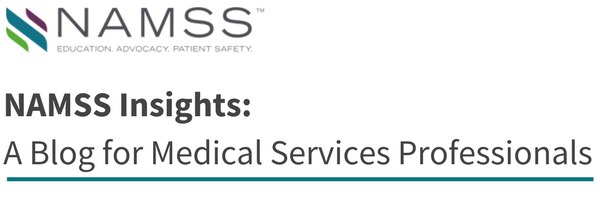MSPs know that among all their responsibilities, the #1
priority is patient safety. Performing the oftentimes challenging work of
credentialing is an essential part of protecting patients and allowing the
delivery of high quality health care. Doctors are trusted to care for patients,
and it is the job of MSPs to confirm their ability to provide care and that hospitals
are aware of any negative incidents that could affect the doctor-patient
relationship. Two recent stories underscore just how critical the work of MSPs
is.
In Cleveland, USA Today found that a surgeon was
accused multiple times of sexually assaulting patients, yet confidential
settlements precluded formal charges against him. The Cleveland Clinic, where
he was employed, placed him on leave, but did not prevent him from continuing
to see patients after a settlement was reached. In fact, when the surgeon later
moved to the Ohio State University Medical Center, the facility was unaware of
any past allegations regarding the physician. While OSU maintains that the
proper credentialing procedure was followed, having official notations of the
investigation would have allowed an MSP to determine whether credentials should
have been issued in light of the allegations.
Even if the Cleveland Clinic had progressed with formal
actions, there was no criminal charge filed. The physician’s record might not
have even reflected the settlement, especially if facility itself took on
liability, as they often do. If the physician had not disclosed his affiliation
with Cleveland Clinic when applying at OSU, or replaced it with another facility
where he had privileges, the OSU credentialing department would have had no way
of knowing whether he was ever employed at the Clinic, much less whether there
had been misconduct.
In an even more
recent example, a Maryland-based OB/GYN was found to have falsified his
identity, including his Social Security number, to obtain licensure in the
state. In fact, over the course of his career, the physician used four
different Social Security numbers, three names, and forged dates of birth and
education histories to obtain multiple credentials, licenses, and privileges at
multiple facilities.
He failed the Foreign Medical Graduate Certification
multiple times under different identities before finally passing, and went on
to be removed from a residency program in New Jersey for falsifying information
and rejected from Medicare for using different Social Security numbers.
However, the Maryland facility, Prince George’s Hospital Center, completed the
credentialing process for the physician and allowed him to practice medicine
for years after the rejection. The intricacies of the fraud demonstrate just
how important a thorough and exhaustive credentialing process is.
As all MSPs know, credentialing is an intricate and often
winding process. Even the most conscientious MSPs can run into issues of
information gaps, whether it is a missing document, an undisclosed affiliation,
or any number of other problems that can arise. NAMSS PASS is a free, secure,
online database that provides quick and easy access to the affiliation history
of practitioners applying for credentials. Through NAMSS PASS, you can
automatically review past affiliations for practitioners, disclosed by the hospital, not the physician. This allows you to
quickly analyze for any gaps in history, or to identify undisclosed
affiliations (a major red flag). In a health care system where patient safety
continues to be at risk and must always be a priority, NAMSS PASS can help your
facility ensure the highest standard of credentialing is completed. To learn
more about NAMSS PASS, please visit http://www.namss.org/NAMSSPASS.aspx.
